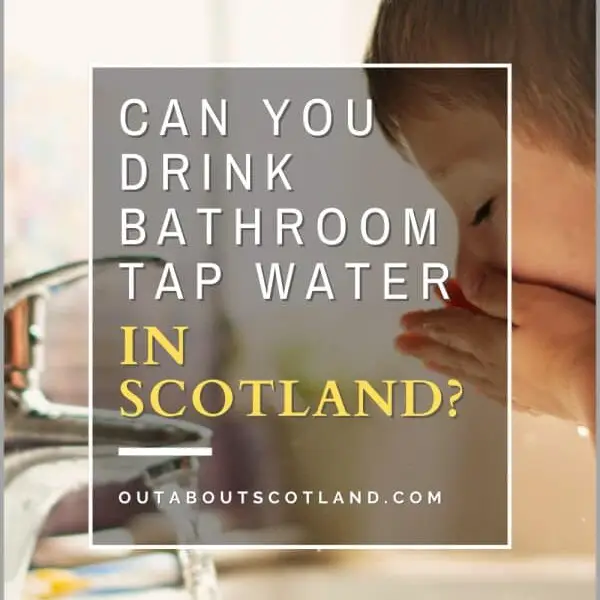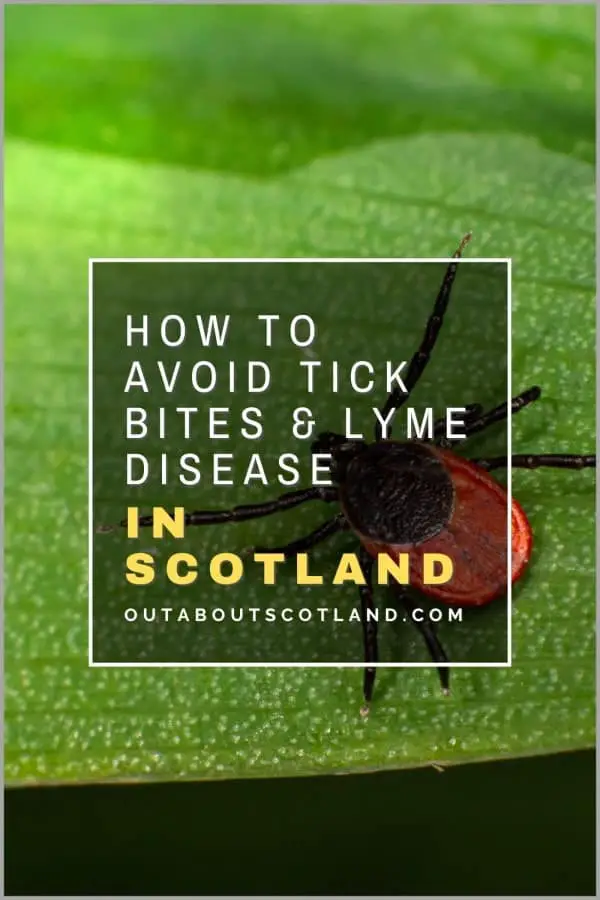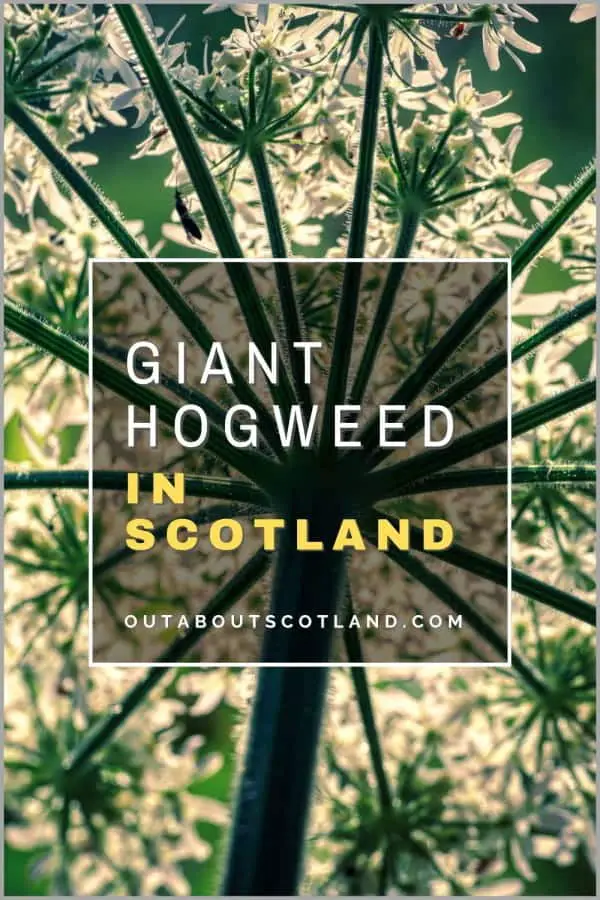One question that’s frequently asked by tourists is, ‘Can you drink tap water in Scotland?’. That’s a perfectly legitimate question, especially for anyone coming here for the first time who hasn’t yet experienced Scotland’s high standards of hygiene.
Most visitors will find themselves staying in a hotel room with a separate bathroom where the only sources of water – other than overpriced bottled water – are the toilet (disgusting), the shower (impractical), and the bathroom tap (that’s okay… isn’t it?).
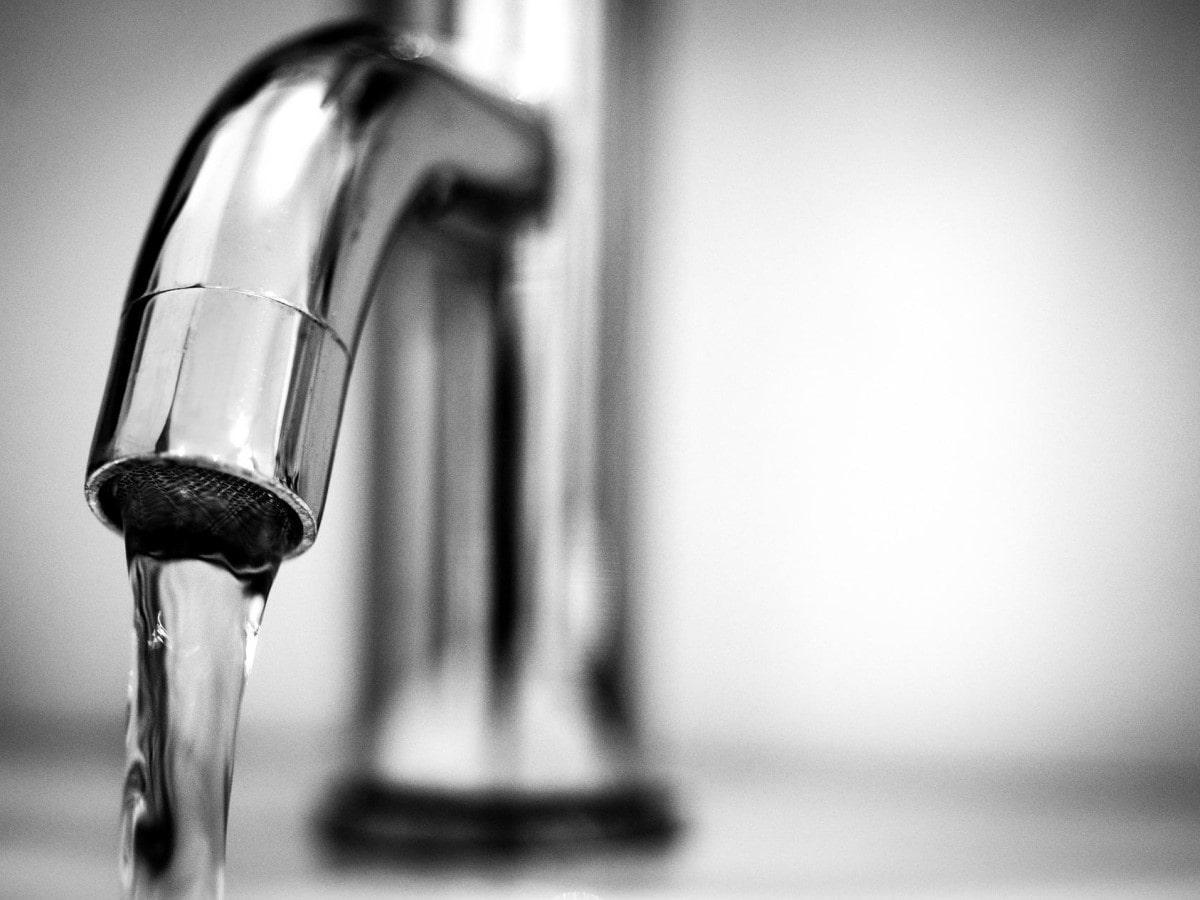
The simple answer is, yes, you can safely drink tap water in Scotland (whether from the kitchen or the bathroom) if it’s labelled as being fit for human consumption in a hotel, or if you know the bathroom tap is piped directly from the drinking water supply in a house.
Water quality is tightly controlled in the United Kingdom and especially so in Scotland where ‘The Water Intended for Human Consumption (Private Supplies) (Scotland) Regulations 2017‘ states that drinking water must not contain organisms or substances that pose a danger to human health.
That being said, it’s advisable to only drink water from the cold tap, only drink tap water in a hotel if there is a statement saying it is safe to do so, and not drink tap water if it has any odour or colour.
Is bathroom tap water safe to drink in the UK?
Water quality standards in the United Kingdom are extremely high, so as a general rule there are very few risks associated with drinking from the bathroom tap. Most cold taps in Britain are supplied directly from the mains water supply which is tested and approved at the water treatment plant as being safe for human consumption under the 2017 regulations mentioned above.
To get to the tap, rainwater and fresh water from rivers and springs is collected in reservoirs before being pumped to water treatment works. This water is then processed to remove microorganisms, chemicals such as nitrate and pesticides, and metals such as lead and copper.
The water is then stored in covered reservoirs and tested to confirm it’s safe before being pumped out to the domestic connection. The entire system of treating water is carried out at the highest possible standards and it’s no surprise that British tap water is regarded as one of the cleanest and safest water supplies in the world.
These standards are applicable wherever you are in Scotland so it’s as safe to drink tap water in Glasgow and Edinburgh as it is in the Highlands and islands.
Is It Safe to Drink Tap Water at Home?
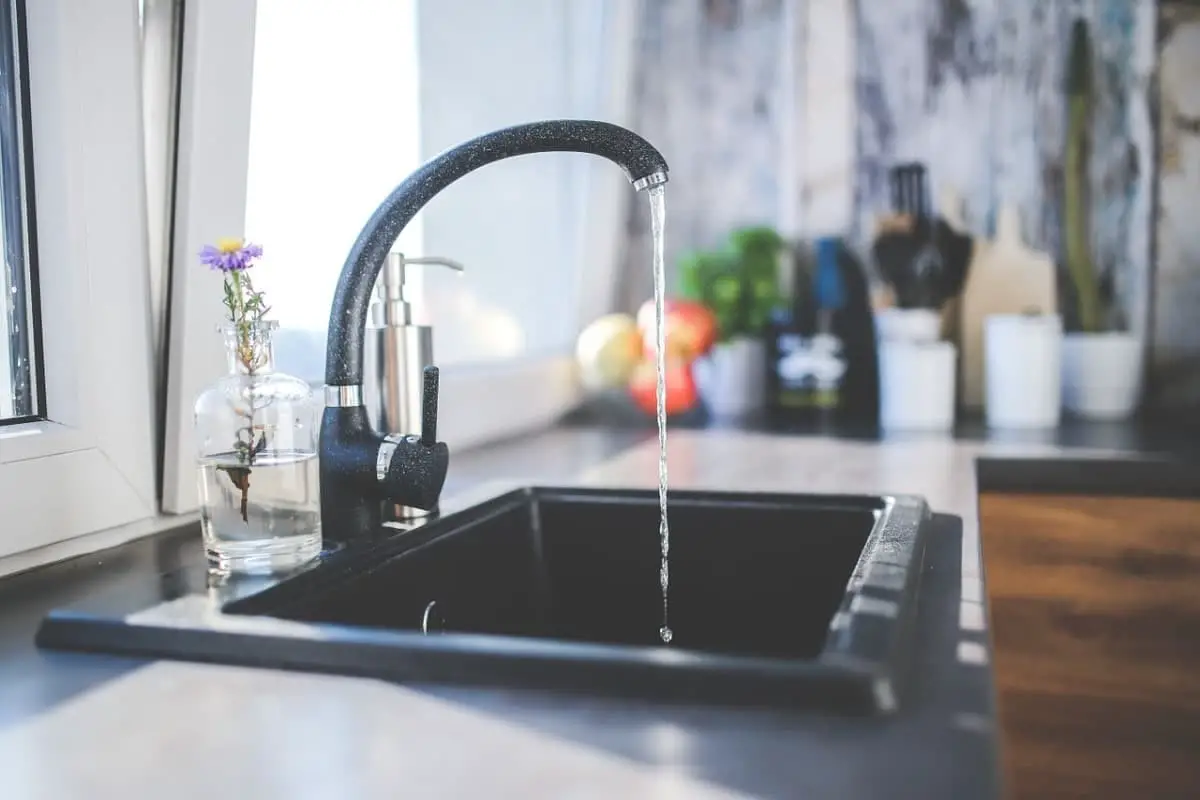
Kitchen tap water is 100% safe as it’s sourced from the main drinking water supply. In new houses, water from cold water taps in the bathroom is also 100% safe as it comes from the same supply.
In older houses, bathroom tap water is usually fed from the mains supply to a storage tank in the loft, which then feeds the the bathroom taps, the shower, and the toilet. The main problems arise if the water system has not been used for a long time, leading to the water in the tank becoming stagnant. In this instance, it’s recommended to run the bathroom cold water tap for a few minutes before drinking from it just to be on the safe side, for example, if you’ve booked an Airbnb.
Another thing to be aware of, is if the house is old (and we have a lot of old houses in Scotland), the water tank in the loft may be uncovered and could therefore contain dead animals and insects (yuk). In addition, the water supply is disinfected with harmless amounts of chlorine, but if the water tank is uncovered the chlorine can evaporate leaving insufficient levels to kill bacteria.
There’s also a potential problem with houses built before 1970 as until that year Britain used lead pipes. After that date, lead pipes were banned but it’s possible that older houses have not had these pipes replaced in the bathroom.
So to summarize, in a new house run the bathroom tap for a while before drinking from it for the first time, and in an old house try to use the kitchen tap for drinking water (bathroom tap water is ok for brushing teeth and washing).
Is It Safe to Drink Bathroom Tap Water in Hotels?
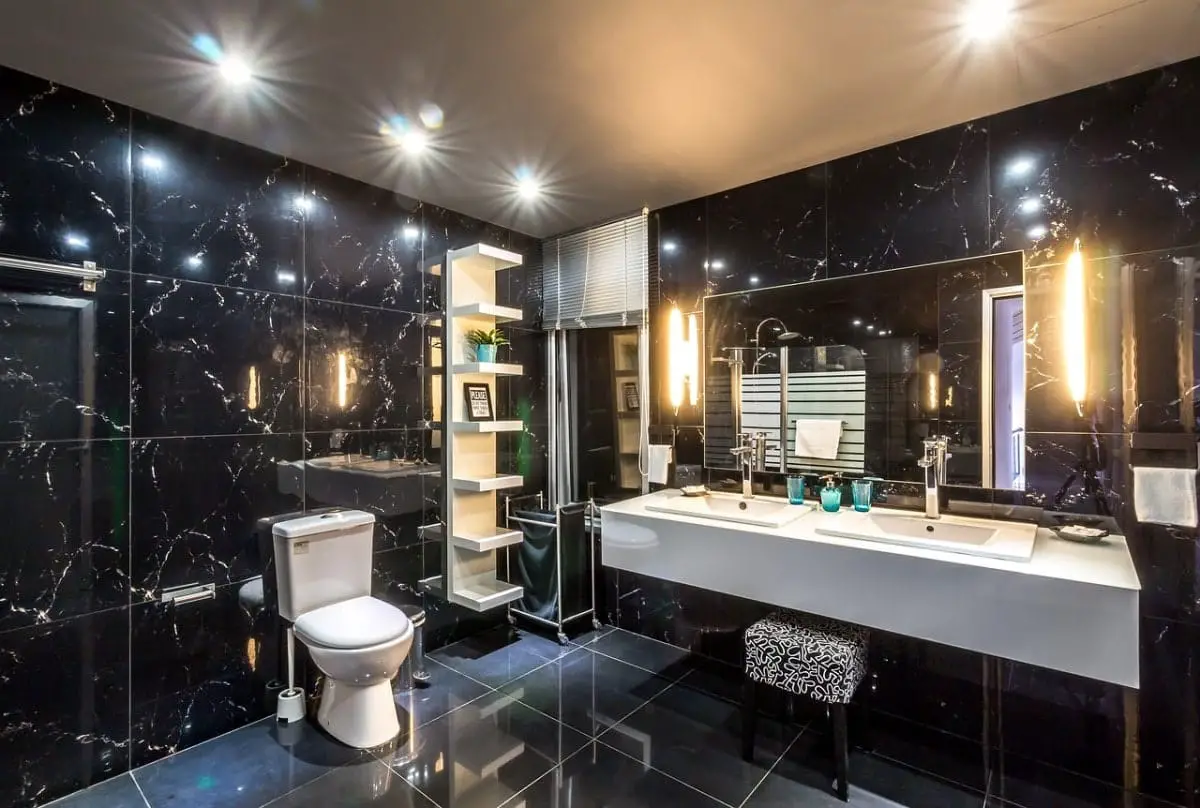
The same basic rules apply to hotels just as they do to houses. New hotels, on the whole, have bathroom taps that are connected to the mains drinking water supply and are therefore safe to drink from. Most hotels now display signs next to the cold water tap to indicate that it is safe, or they include details about it in their literature.
Old hotels, on the other hand, may have clean water coming into the building, but it is then stored in an uncovered tank – or worse in large hotels – there are lead pipes in the system that have been forgotten about. There’s also the possibility that even if the lead has been replaced with new copper pipes they have been joined with solder that contains lead.
As a guide, if you’re staying in a new hotel and there’s a sign that says the water is safe to drink (sometimes labelled as ‘potable water’) then go ahead and drink all you like. If the hotel is old (pre-1970) and doesn’t have signage to say the water is drinkable, it’s best to stick to bottled water.
Is it Better to Drink Tap Water or Bottled Water?
There’s a common misconception in Britain that bottled water is safer to drink than tap water, but the fact is, the reverse is often true. In the UK, our obsession with bottled water means that over 2.5 billion litres are consumed each year, which in turn leads to around 8 billion plastic bottles being discarded. The majority are sent for recycling, but an alarming number are either sent to landfills or left to pollute our waterways.
That’s not good when it takes up to 700 years for plastic to fully degrade. On average, each user of plastic bottles discards 3 bottles a week, but if just 1 in 10 people refilled once a week instead, it would reduce the number of plastic bottles by 340 million every year.
But other than the environmental concerns, why else should we ditch bottled water?
Well for starters, drinking bottled water is expensive and the cost of a 1-litre bottle is up to 1,000 times more expensive than tap water. To put that in perspective, for the same cost of one bottle of water you could drink two litres of tap water every single day for one year.
Another reason to ditch bottled water is that tap water is often much purer as it has to pass more stringent compliance tests, and to date, Scottish tap water has a 99.89% pass rate. The quality of tap water is also fully transparent and it’s possible to go online to see the results of the latest tests in your area, whereas bottled water manufacturers have no obligation to disclose this information.
If you’d like to see the water quality in your area, head to the scottishwater.co.uk Water Quality Search page.
Should you filter tap water in Scotland?
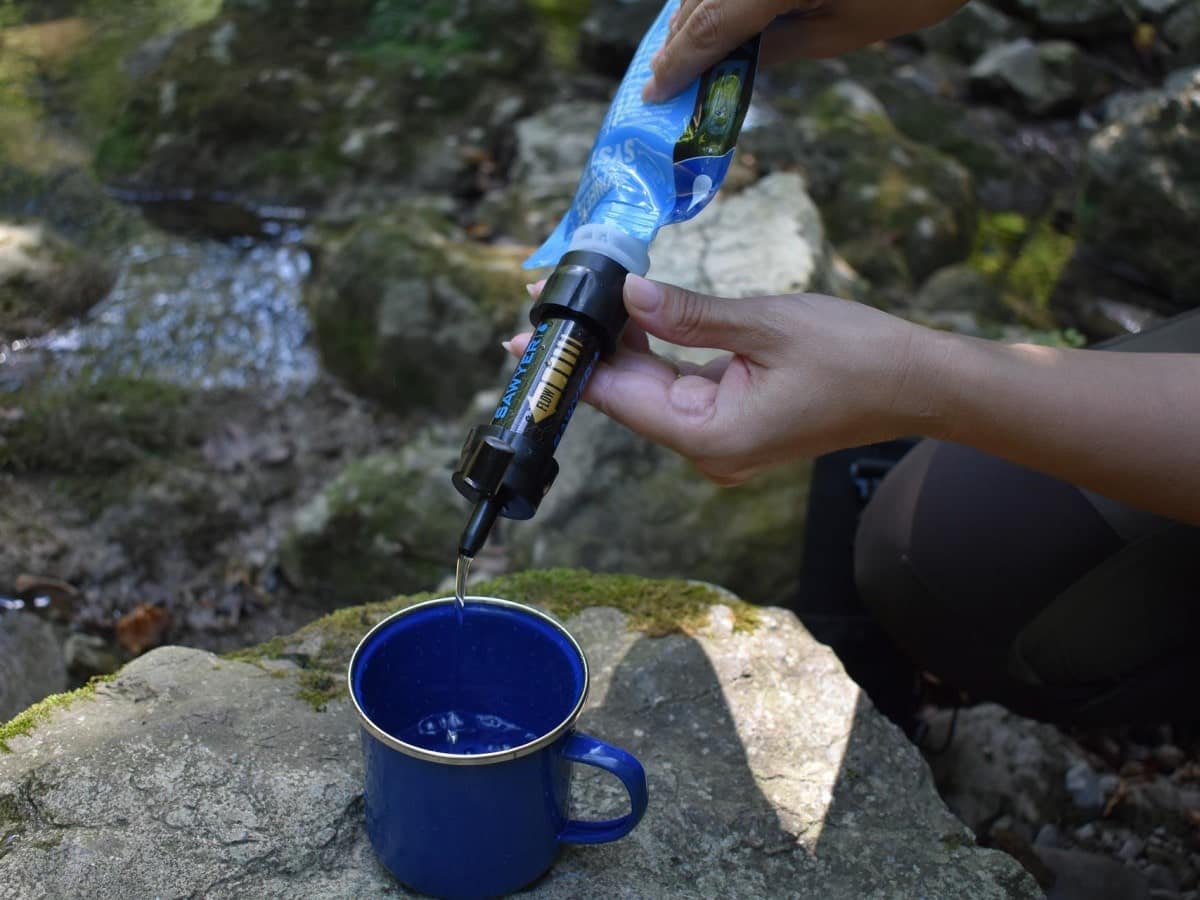
There is no need to filter potable tap water in Scotland, however, there may be instances where it is preferable to do so. Water filters work in several different ways, but the most common for domestic use is activated carbon in the form of replaceable filters.
These filters sit inside a container that water is poured into, with the water slowly filtering through microscopic spherical carbon particles that contaminants stick to in a process called adsorption. This method of filtration is cheap and efficient at removing microplastics and some bacteria from water, though the user needs to be aware that the filters require replacing every 4 weeks or so.
Is Scottish Tap Water Hard or Soft?
Scottish tap water is renowned for being soft and water filters are generally not required as tap water is already pure, but they are a worthwhile purchase in hard water areas such as the southeast of England.
Hard water is water that has a high mineral content with deposits of limestone, chalk or gypsum which are not removed at the treatment plant. This water is perfectly safe to drink but it often has an unpleasant taste and has the side effect of coating kitchen appliances with hard crusts of mineral deposits that drastically reduce their lifespan.
Hard water is also notoriously difficult to bathe in as it prevents soap from foaming, meaning more detergent is required, and it can coat the inside of pipes leading to a loss of water pressure.
Houses in hard-water areas may have carbon filters installed in the plumbing system, but if not, a portable jug filter will at least allow a cup of tea without a layer of scum floating on If you’d like to improve the quality of your tap water, you won’t go wrong with a Brita filter water jug (Amazon link).
Resources
Frequently Asked Questions
Can you drink Scottish loch water?
It is not advisable to drink water from Scottish lochs. Although most Scottish lochs are clean enough to swim in, some contaminants and microorganisms can be ingested even in the cleanest-looking bodies of water.
In addition, some lochs are polluted with green-blue algae which is a type of bacteria that produces potent toxins. These toxins can invoke vomiting, eye irritation and skin rashes.
How clean are Scottish rivers?
Of Scotland’s 78,000 miles of rivers and 135 miles of canals, nearly half have been surveyed and classified as being in good condition. However, this wasn’t always the case, and from the 1800s on, many of Scotland’s rivers were badly polluted due to urbanisation, with efforts to clean them up not starting until the mid-1960s.
The Scottish Environment Protection Agency now oversees the management of Scotland’s waterways and keeps an eye on water quality and rule compliance.
Can you drink from Highland streams?
It is safe to drink water from Highland streams as long as the water source has been traced and it has been ascertained there are no upstream contaminants such as dead animals. Highland spring water that’s fresh from the source is generally safe as long as the water is moving.
To be totally sure the water is clean, it is recommended to boil it before consumption, filter it in a portable filtration system, or use chemical purification tablets.
Should I use a water filter in Scotland?
Generally, water filtration systems are not needed in Scotland as long as the water is sourced directly from the main potable supply.
Water filtration systems are useful in two circumstances. The first is areas with hard water where limescale leaves a layer of mineral deposits, and the second is when travelling outdoors and drinking freshwater from a natural source such as a spring.
In the second instance, it is recommended to purchase a portable water bottle with a replaceable carbon filter such as this one from Amazon.
Does Scottish tap water contain fluoride?
As of 2022, no public drinking water supply in Scotland has fluoride added to it. There may, however, be traces of naturally occurring fluoride in tap water which is usually less than 0.1 mg per litre.

